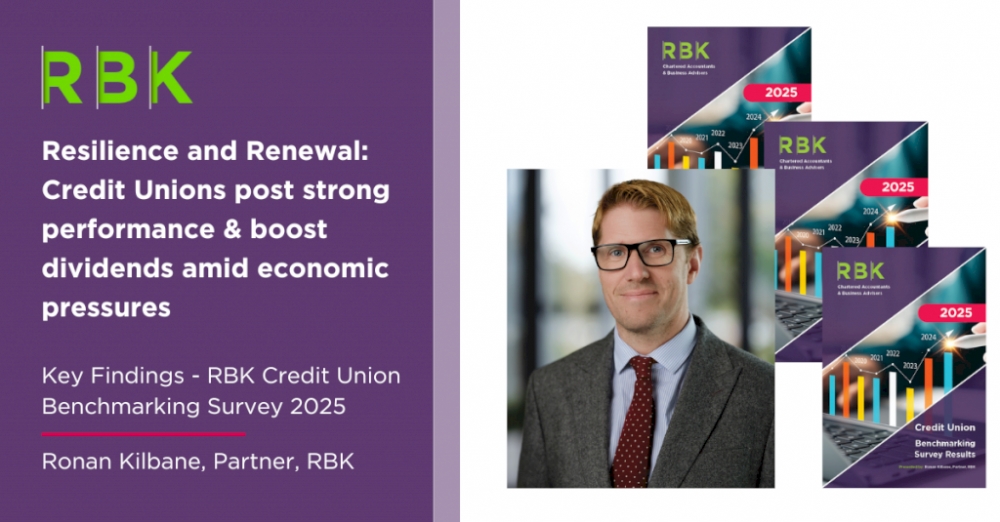Credit Unions are demonstrating improved efficiency with declining wages-to-income ratios and stronger loan book growth, according to RBK’s 13th Annual Credit Union Benchmarking report. The report, summarises the findings of a survey of Credit Unions undertaken in March/April 2025.
2024 saw Credit Unions report robust loan book growth, particularly in home improvement and car loans. Bad debt provisions have decreased to all-time lows. Reserves remain strong with all Credit Unions exceeding the minimum regulatory requirement of 10%.
The trend of increasing dividend payments has continued, with nearly two-thirds of Credit Unions paying dividends in 2024, a substantial increase on the previous year. The report shows good progress in operational resilience frameworks, though testing remains the primary barrier to full implementation and cybersecurity concerns have intensified.
Commenting on this year’s report, RBK Partner Ronan Kilbane said:
“Financial indicators have shown considerable improvement across the sector. Investment portfolios are trending downward as a percentage of assets, aligned with the shift towards increased lending. This is a positive development for Credit Unions whose primary mission is providing financial services to members.
“Human resource management has emerged as a key focus area. With nearly all Credit Unions expecting to maintain or increase hiring in 2025/2026, addressing structural gaps will be important for sustainable growth.
“Looking ahead, the sector faces several challenges. The operational resilience frameworks that were a key focus in 2024 need further development, with testing remaining the most significant barrier to full implementation.”
Key Findings
Loan book: The average loan amount has increased year-on-year, with particular strength in home improvement and car loans.
Reserves: All Credit Unions are exceeding the minimum regulatory requirement of 10%, with the vast majority reporting well above this threshold.
Costs: Efficiency gains are evident through the declining wages-to-income ratio.
Operational Resilience: There has been notable progress in operational resilience framework implementation, with completion rates rising year-on-year.
Human Resources: Salary increases have been widespread, with an average increase of around 4%.
Climate Change and ESG: ESG considerations have become mainstream, with over 80% of Credit Unions now incorporating an ESG policy into their policy framework.
Marketing: A large number of Credit Unions lack understanding of their Common Bond penetration.
Cybersecurity: Many Credit Unions appear to approach vulnerability scanning as a compliance exercise rather than an integral security measure.
Outsourcing: Most Credit Unions have made progress aligning their outsourcing frameworks with regulatory standards.
A copy of the full report can be accessed here:



